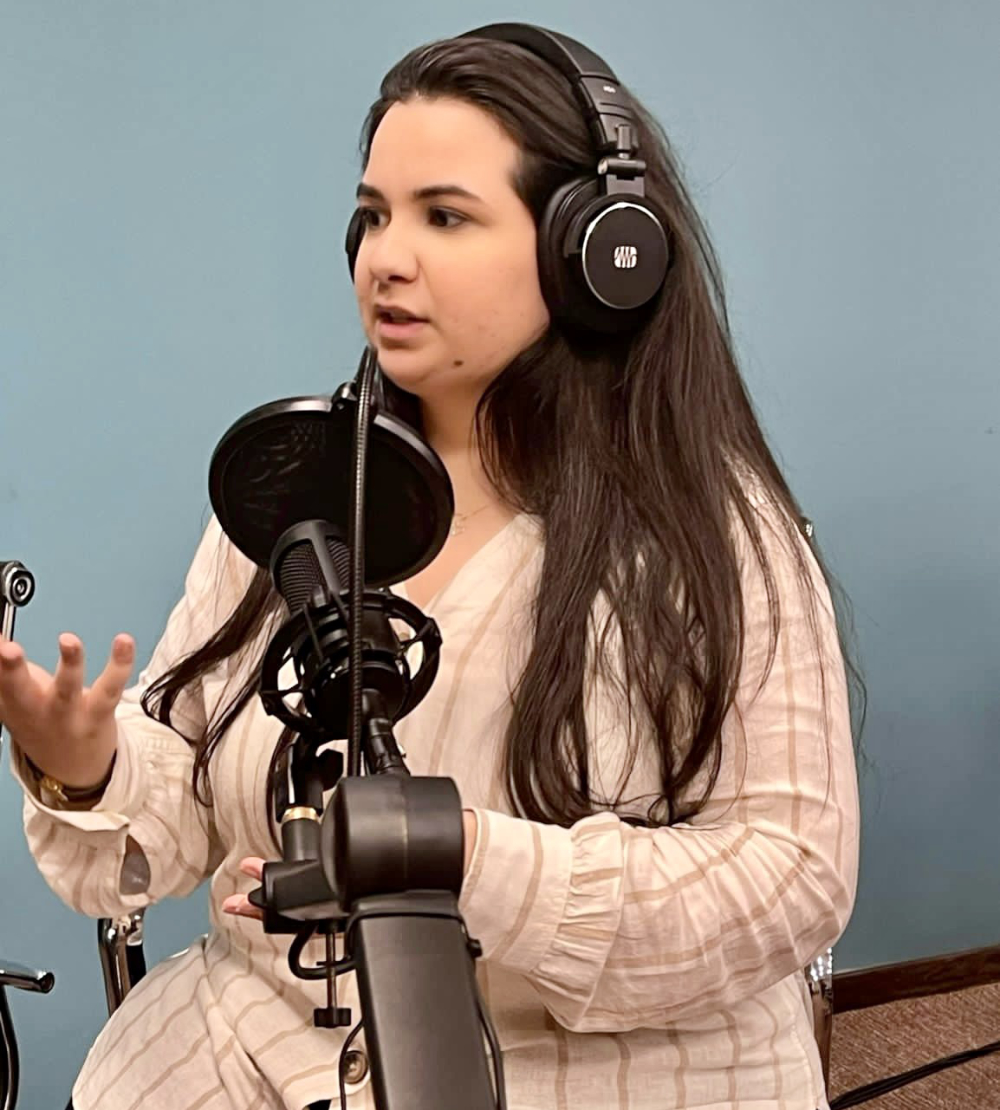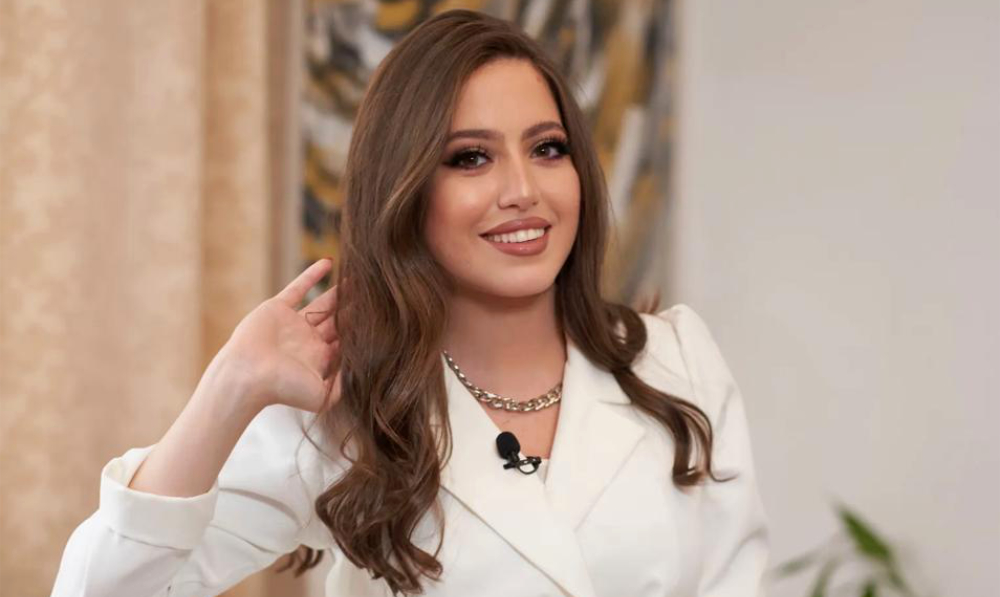RIYADH: At 7am sharp, Samar Al-Mizari’s alarm clock signals the start of another busy day in the world of television news. Every morning at the breakfast table before heading out, she scrolls through her emails and social media apps to keep up to date with the day’s events.
Al-Mizari is a Palestinian journalist and producer at Al-Arabiya in Dubai – part of a young and ambitious generation of Arab women who are making a name for themselves in the region’s burgeoning media industry.
“When I studied media at the American University in Dubai, what caught my attention was that most media classes had more girls than men, and that’s proof that media of today and tomorrow will be presented by Arab women,” Al-Mizari told Arab. News.
“In our class there were students from Saudi Arabia, Sudan, Lebanon, Syria, Palestine and Jordan, and we worked and stayed up all night together preparing press materials using our different horizons. We were all ambitious young women and somehow we worked really hard on our talents and always fought hard which made class more fun.
Indeed, thanks to greater opportunities for work and training, Arab women now regularly host prime time television news and report behind the scenes of major stories.
“It is often said that women are driven by their emotional characters or are too sensitive, that they are unable to cope with difficulties in their careers,” Al-Mizari said.
“When I entered my challenging profession, I saw honorable and hardworking examples of women of all different ages carrying out the tasks required of them.”
And yet, despite recent advances, women are still underrepresented in media ownership, news production and decision-making positions around the world.
These gender inequalities are even more pronounced in media content, with news, reporting and programming being dominated by men.

A 20-year study by UN Women found that in 2015, only 24% of subjects quoted, interviewed or written about in newspapers, TV and radio were women.
According to a Reuters Institute fact sheet published in 2020, which analyzed the gender distribution of top editors in a strategic sample of 200 major online and offline news outlets in 10 different markets on four continents , only 23 percent of top editors were women, despite the fact that on average, 40 percent of journalists in the 10 markets were women.
To address this imbalance, efforts are being made to increase the presence of women in the media and in leadership positions.
Al-Mizari says it is essential that women are properly represented, both in media production and as a subject, because no one is better qualified to explain or document the experiences of Arab women than the Arab women themselves. themselves.
Like Al-Mizari, women in the Arab world have worked hard to overcome barriers to entry into traditionally male-dominated industries.

Many universities have established media and communications programs, which have helped young women pursue careers in journalism. Among them is the Mohammed bin Rashid School for Communication in Dubai, which offers students the opportunity to attend on full scholarships.
Mousa Barhoum, a journalism professor at MBRSC, says most of his students today are ambitious Arab women.
“I am among those who expect more feminization of Arab media in the future,” Barhoum told Arab News. “From my experience teaching media students at MBRSC, I found that they are creative, intellectually liberated, and have a desire to produce different and creative media.
“I don’t like the term ‘women’s empowerment’ because it suggests that action comes from outside. The Arab woman is now seizing her role and her status, and empowering herself.

Reem Hambazaza, a Saudi journalist who studied journalism at the University of Business and Technology in Jeddah, says media and journalism courses have evolved in recent years, allowing women to keep pace with a constantly evolving profession.
“Women have a strong presence in the media industry, as many of my colleagues are women,” Hambazaza said. “This field has changed dramatically over the past 10 years and Saudi Vision 2030 will enable women to play a greater role in the media.”
Arab women have also made rapid progress in the industry thanks to the advent of social media, which has enabled the growth of citizen journalism and microblogging. For example, Aya Ramadan, a Syrian television host for Al-Aan in the United Arab Emirates, started her career on social media before moving on to television.
“Western media don’t care if the presenter is a woman or a man,” Ramadan told Arab News. “The Arab world is also adopting this way of thinking. They are looking for qualified people who can do the job and that is why there is strong support for women in all media specializations, such as broadcaster, television broadcaster, news director, producer, journalist and more.

While a combination of college courses, job opportunities, social media platforms and raw ambition fueled this rapid development, cultural attitudes were slower to change. Many women continue to face opposition from family members and society at large.
Razan Tariq, a Saudi television presenter on SBC, said her father initially disapproved of her decision to pursue a career in the media.
“At the beginning, my father was against my presence in the media and refused to let me study because he comes from a conservative family and until now some members of my family do not speak to me,” Tariq said. at Arab News.
“But over time he changed his mind and now he loves my TV show and he always posts about me on his Facebook account. Also, I’m lucky to have the support of my awesome husband , who is also in the media industry, and whenever I feel tired from my job, he supports me and thinks what I do is important.
Tariq says she was inspired by the words of Saudi Crown Prince Mohammed bin Salman in a recent interview with Bloomberg.
“I support Saudi Arabia, and half of Saudi Arabia are women,” the crown prince told the outlet. “Therefore, I support women.”

